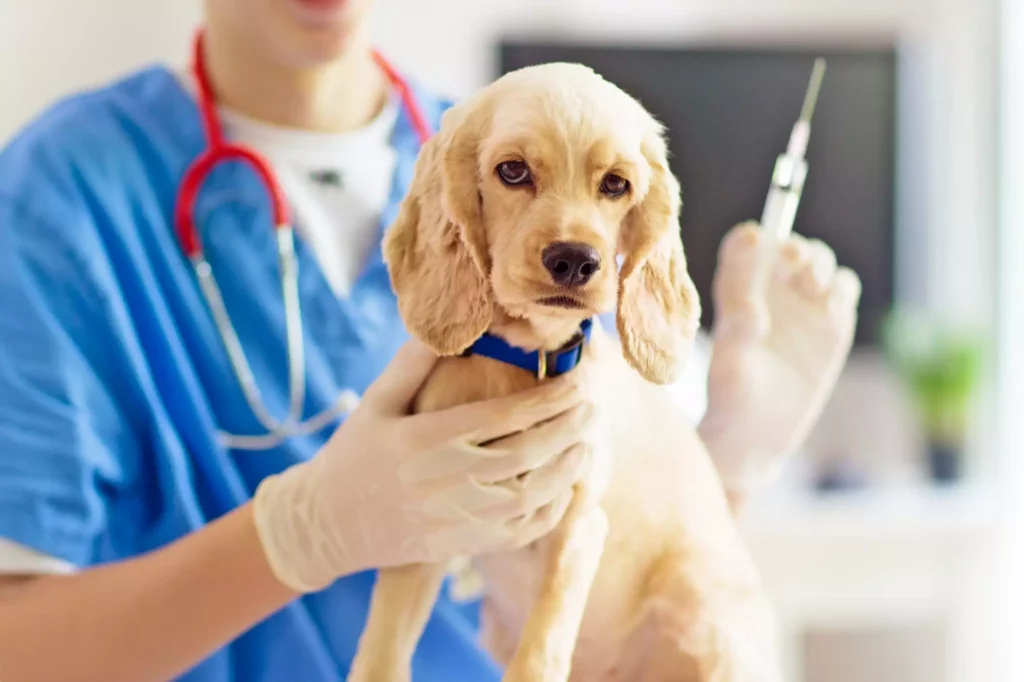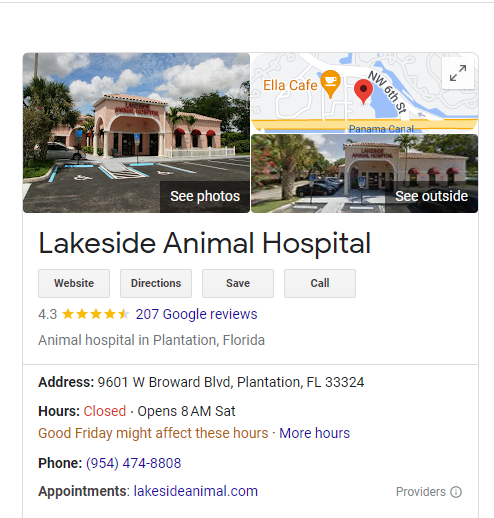
Tips for Pet Vaccinations in Plantation: Keep Your Furry Friend Healthy and Happy
As a responsible pet owner, you want to make sure your beloved animal stays healthy and happy. One of the best ways to do that is through regular immunizations. Vaccines protect your pet from dangerous diseases and infections that can be costly, painful, and even fatal.
Plantation Fl Animal Hospital – Lakeside Animal Hospital
What are pet vaccinations?
Pet vaccinations are a series of injections that protect animals from various diseases and illnesses. These vaccines are formulated to stimulate the pet’s immune system to recognize and defend against specific infectious agents. Vaccines are made from either killed or weakened forms of the disease-causing microorganisms, or proteins that mimic the microorganisms.
Why are pet vaccinations important?
Pet vaccinations are essential for several reasons. Firstly, they prevent your pet from contracting serious, sometimes life-threatening diseases. Vaccines create immunity to infections by preparing the body to fight off a particular disease. By vaccinating your pet, you are helping them build up resistance against harmful pathogens.
Plantation Fl Pet Vaccination Veterinarian
Secondly, vaccinations help reduce the spread of diseases. Vaccinated pets are less likely to spread the disease to other animals, which helps to protect the entire pet population. This is especially important in places like dog parks or kennels, where pets from different households come into close contact.
Thirdly, vaccinations are cost-effective. Vaccines are much cheaper than treating an animal that has contracted the disease. The cost of treatment can run into the thousands of dollars, depending on the severity of the disease. By vaccinating your pet, you are investing in their long-term health and avoiding costly medical bills.
What vaccinations do pets need?
The vaccinations your pet needs depend on several factors, such as age, breed, and lifestyle. The core vaccines, which are essential for all pets, include rabies, canine distemper, parvovirus, and feline panleukopenia. Your veterinarian may also recommend non-core vaccines, such as Bordetella, Lyme, and Leptospirosis, depending on your pet’s individual needs.
When should pets be vaccinated?
Puppies and kittens should be vaccinated starting at six to eight weeks of age. They will need several rounds of vaccinations until they reach 16-20 weeks old. Adult pets should receive booster shots every one to three years, depending on the vaccine and your veterinarian’s recommendation.
What are the risks of pet vaccinations?
While vaccinations are generally safe, some pets may experience mild side effects, such as fever or lethargy. In rare cases, pets may have an allergic reaction to the vaccine. It’s essential to monitor your pet after vaccination and contact your veterinarian if you notice any unusual symptoms.
Plantation Florida Pet Dental Care
Pet vaccinations are an essential part of responsible pet ownership. They protect your furry friend from serious and sometimes fatal diseases, reduce the spread of infectious agents, and save you from costly medical bills. By working with your veterinarian to create a vaccination schedule that suits your pet’s needs, you can help ensure that they stay healthy and happy for years to come.
Here are some tips on pet immunization in Plantation, Florida.
- Follow a vaccination schedule recommended by your veterinarian.
Your veterinarian is your best source of information when it comes to vaccinating your pet. They will evaluate your pet’s health, lifestyle, and risk factors to determine the most appropriate vaccination schedule. For example, puppies and kittens require a series of vaccinations to build immunity, while adult dogs and cats may need booster shots every year or every three years.
- Don’t skip routine vaccinations.
It’s important to keep up with your pet’s vaccinations even if they seem healthy. Skipping routine vaccinations can leave your pet vulnerable to diseases that are easily preventable. In some cases, it can also put other pets and humans at risk.
- Consider non-core vaccinations.
In addition to core vaccines that are recommended for all pets, there are non-core vaccines that may be necessary depending on your pet’s lifestyle and risk factors. For example, if you take your dog to dog parks or kennels, they may need a vaccine for kennel cough. If you live in an area where Lyme disease is common, your dog may need a vaccine for that as well.
- Monitor your pet after vaccinations.
It’s normal for your pet to experience some mild side effects after vaccinations, such as lethargy or a slight fever. However, if you notice any unusual symptoms, such as vomiting, diarrhea, or difficulty breathing, contact your veterinarian immediately.
- Keep accurate vaccination records.
Make sure you keep accurate records of your pet’s vaccinations. This is important for several reasons. First, it helps you keep track of when your pet needs booster shots. Second, if you ever need to board your pet or take them to a new veterinarian, you’ll need to provide proof of vaccinations.
In conclusion, pet immunization is an important part of responsible pet ownership. By following these tips and working closely with your veterinarian, you can help ensure your pet stays healthy and happy for years to come.
Learn more about Lakeside Animal Hospital
Plantation Florida Pet Hospital




